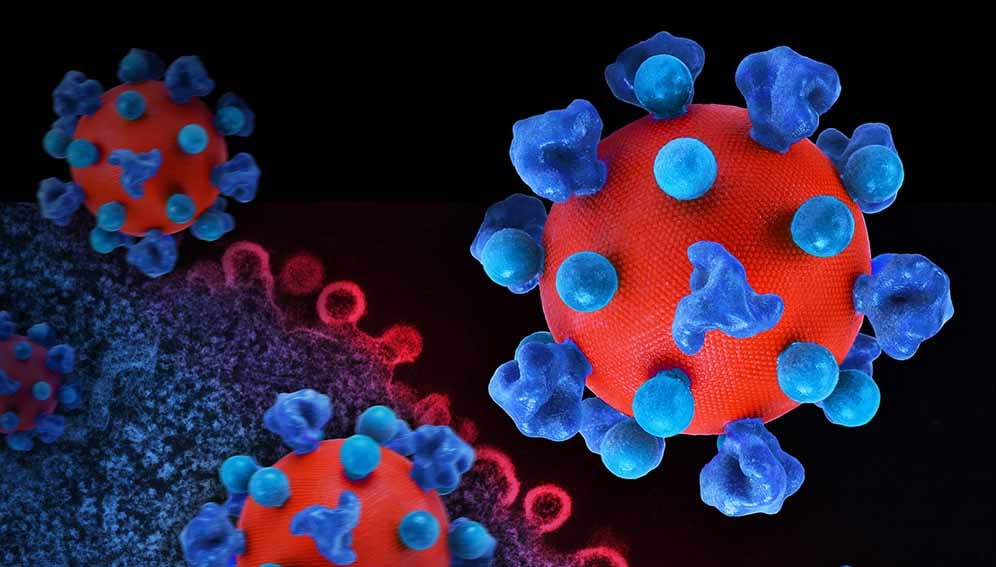02/10/25
Broader access urged for affordable HIV drug

By: Dann Okoth
Send to a friend
The details you provide on this page will not be used to send unsolicited email, and will not be sold to a 3rd party. See privacy policy.
[NAIROBI, SciDev.Net] The rollout of an affordable new HIV prevention drug, hailed as a breakthrough in the fight to end the global epidemic, must be accompanied by broader efforts to increase access, campaigners say.
Lenacapavir, a twice-yearly injection, will be available in 120 low- and middle-income countries at a cost of US$40 a year under new licensing deals between US pharma company Gilead Sciences and generic drugmakers in India.
In partnership with the Gates Foundation and Unitaid, the drug is expected to be rolled out from 2027, pending regulatory approval.
“Funding is essential for awareness campaigns, training health workers, supply, delivery and distribution … so the cuts of financing HIV programmes are a huge hindrance to access to these effective medicines.”
Mohga Kamal-Yanni, policy lead, The People’s Medicines Alliance
Funders hailed the deals announced last week as a major step forward in the fight to end the global HIV/AIDS epidemic, which affects 40.8 million people.
However, access to medicine advocates are concerned that middle-income countries, in regions with growing HIV rates, will be excluded from these and other licensing agreements with Gilead.
The International Treatment Preparedness Coalition’s (ITPC), which seeks to bring down the price of HIV, TB, Hepatitis C through its Make Medicines Affordable campaign, condemned the exclusion of “dozens of countries” from the lenacapavir licensing deals, in regions including Latin America, North Africa and Asia.
“Communities in so-called ‘middle-income’ countries are treated as if they can afford monopoly prices – but the reality is health systems are collapsing, programs are being cut, and millions will be denied prevention that could end AIDS,” said ITPC executive director Solange Baptiste.
Generics deals
Under the deals announced on the sidelines of the UN General Assembly in New York, the Gates Foundation will support Indian pharma company Hetero with upfront funding and volume guarantees to enable it to manufacture and sell generic lenacapavir for about US$40 per patient – a price considered affordable for most low- and middle-income countries to procure.
The foundation says it has invested more than US$80 million to accelerate market readiness, scale delivery, and shorten the timeline for generic entry of lenacapavir.
Meanwhile, the Clinton Health Access Initiative (CHAI), Unitaid, and South African research institute Wits RHI will provide Dr. Reddy’s, another Indian drugmaker, with financial, technical, and regulatory support to deliver generic versions of the drug to low- and middle-income countries from 2027, at the same price.
The new collaborations follow earlier agreements between the Global Fund to Fight AIDS, Tuberculosis and Malaria, Gilead Sciences, and the US State Department through PEPFAR, and supported by the Children’s Investment Fund Foundation.
As part of the earlier agreement, Gilead said it hoped to reach 2 million people in the next three years, with the rollout slated to begin in countries supported by the Global Fund by the end of 2025.
Gilead signed voluntary licensing agreements in October 2024 with six generic manufacturers: Dr. Reddy’s, Hetero and fellow Indian pharma company Emcure, Egypt-based Eva Pharma, Ferozsons Laboratories Limited, in Pakistan, and Mylan, a subsidiary of US firm Viatris.
It says it will supply lenacapavir to low- and lower-middle-income countries supported by the Global Fund and PEPFAR until generic manufacturers can meet demand.
Latin America ‘excluded’
According to the Access to Medicine Foundation, a non-profit organisation that engages pharma companies to increase access in poorer countries, 17 low- and middle-income countries covered by its Access to Medicine Index are excluded from the licensing agreements. It says these countries — mostly in Central and South America — accounted for 19 per cent of new HIV cases in 2023. Most of these countries are classified by the World Bank as middle-income countries.
In a statement to SciDev.Net, Gilead said it was prioritising registrations for 18 countries that represent 70 per cent of the HIV burden of the 120 countries named in the voluntary licensing agreements, namely: Botswana, Eswatini, Ethiopia, Kenya, Lesotho, Malawi, Mozambique, Namibia, Nigeria, Rwanda, South Africa, Tanzania, Uganda, Zambia, Zimbabwe, Philippines, Thailand and Vietnam.
“In middle-income countries outside the voluntary licensing region, we’re working with governments and regional bodies to define and pursue the fastest paths to access,” it said, highlighting discussions with the Pan American Health Organization (PAHO) to expand access to in Latin America.
In 2024, there were 1.3 million newly acquired HIV infections globally, according to UNAIDS.
A recent study in The Lancet HIV suggests that lenacapavir has the potential to significantly reduce HIV infections as a Pre-Exposure Prophylaxis (PrEP) option, taken to prevent infection from sex or drug use. The study showed that scaling up access to the drug to just four per cent of the population in high-burden countries could prevent up to 20 per cent of new infections.
Mohga Kamal-Yanni, a global health and access to medicines consultant and policy lead for The People’s Medicines Alliance — an access to medicines lobbying group — stresses that this will require investment beyond the production of drugs.
“Funding is essential for awareness campaigns, training health workers, supply, delivery and distribution … so the cuts of financing HIV programmes are a huge hindrance to access to these effective medicines,” she told SciDev.Net.
‘Transparency lacking’
For countries not covered by the US$40 per year agreement, Kamal-Yanni believes there must be more transparency around pricing from Gilead.
“Gilead has not announced its price. In fact, its current agreement with the Global Fund has a clause to ensure secrecy,” she told SciDev.Net.”
She also highlighted the exclusion of countries with high infection rates from Gilead’s licensing deals.
In its statement, Gilead said the price was confidential but added: “Under the strategic partnership agreement between Gilead and the Global Fund, and subsequent announcement of a partnership with PEPFAR, Gilead’s pricing reflects the cost of producing and delivering lenacapavir, at no profit to the company.”
This piece was produced by SciDev.Net’s Global desk.


